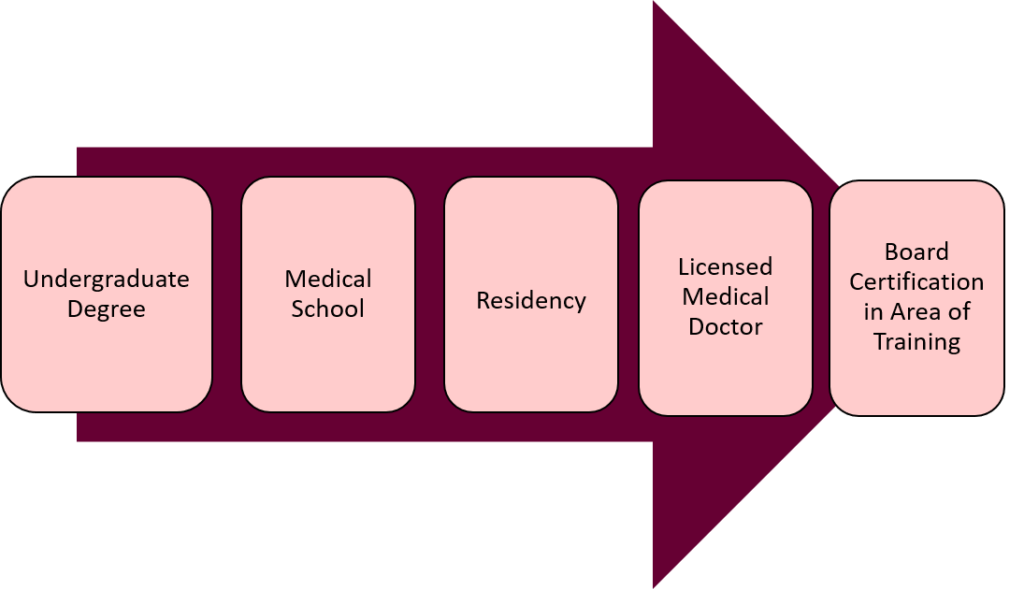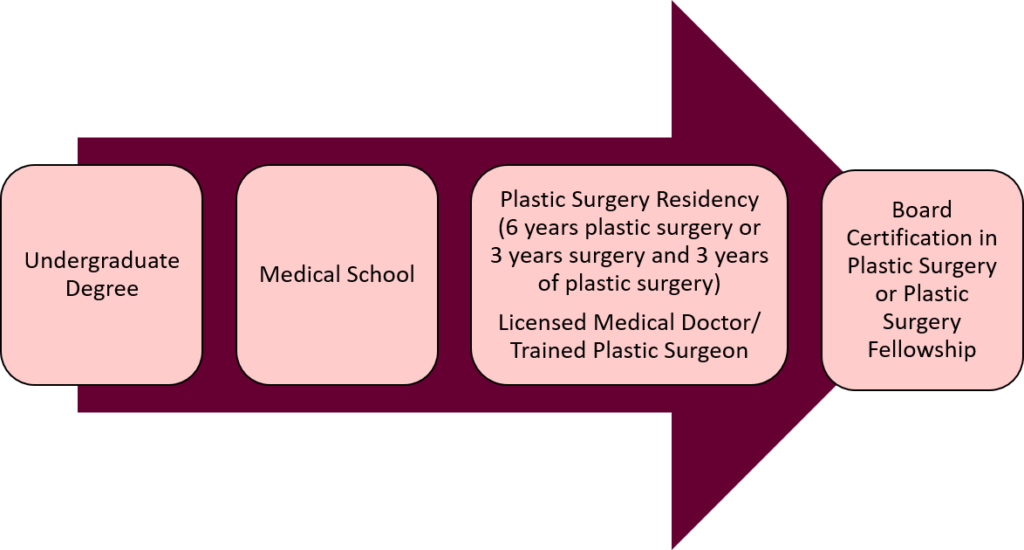Most people use the terms plastic surgery and cosmetic surgery as if they mean the same thing. But, do they? Let’s look at a fictional example that paints a picture to help you understand.
Two groups of patients arrive at a surgical center where Dr. Brown and Dr. Jimenez work. Both are plastic surgeons. Dr. Brown focuses on cosmetic surgeries that enhance the body to improve appearance. Dr. Jimenez focuses on reconstructive surgeries that correct physical defects of the body.
The patients in group one want to learn more about facelifts, tummy tucks, Brazilian butt lifts, liposuction, and rhinoplasty. They will see Dr. Brown.
The patients in group two want to learn more about correcting injuries caused by burns, tumors, and birth defects on the hands, mouth, and neck. They will see Dr. Jimenez.
Both Dr. Brown and Dr. Jimenez graduated from an accredited medical school. After that, Dr. Brown completed a six-year plastic surgery residency approved by the Accreditation Council for Graduate Medical Education (ACGME), and Dr. Jimenez completed a surgery residency plus three years of additional training in plastic surgery in a program accredited by ACGME.
Plastic Surgeons are Cosmetic Surgeons
Plastic surgeons are also cosmetic surgeons who have completed a plastic surgery residency approved by the Accreditation Council for Graduate Medical Education. Many plastic surgeons focus on cosmetic surgery procedures and many focus on reconstructive procedures. This is important for patients looking to choose a surgeon who has the most experience performing their desired procedure.
In the example above, both Dr. Brown and Dr. Jimenez are plastic surgeons who are trained to perform cosmetic surgery procedures. All accredited plastic surgery residencies train plastic surgeons to perform cosmetic surgery because cosmetic surgery is a crucial part of their job.
How to Identify a Plastic Surgeon
Many doctors call themselves plastic surgeons or cosmetic surgeons because they are performing breast enhancements, tummy tucks, liposuction, face surgeries, and Brazilian Butt Lifts. Any doctor licensed by the board of medicine in the state where they work can perform plastic surgery. Likely, they received some training in general or plastic surgery during residency after medical school.
However, it probably does not match the extensive training required by ACGME plastic surgery residencies or meet their high standards. ACGME plastic surgery residency programs prepare plastic surgeons to deliver quality care to patients before, during, and after surgery, and to deliver the best results.

Plastic surgeons trained in residency programs accredited by the Accreditation Council for Graduate Medical Education have completed either (1) 6 years of training in a plastic surgery residency, or (2) 3 years of training in a surgery residency and 3 years of training in a plastic surgery residency. Simply put, throughout the residency, the knowledge, skills, attitudes, and performance of the resident surgeon are continuously measured.

Indeed, if you ever meet a “cosmetic surgeon” or “plastic surgeon” not trained in an ACGME accredited plastic surgery residency, raise your brow, pull out your notebook, and start asking questions.
Put Your Mind At Ease
When choosing the plastic surgeon who will have your life in their hands, it is important your decision weighs heavily on their training. Above all, you want a surgeon licensed and in good standing with the board of medicine in the state where they work, who trained in a plastic surgery residency accredited by the ACGME, and who has a lot of experience performing the surgery you desire. Similarly, you also want a plastic surgeon who has a photo gallery of examples of their work and a reputation for outstanding patient care.
In the end, before hiring a plastic surgeon for your cosmetic procedure, ask, “Did you complete a plastic surgery residency? Where?” Then ask, “How often have you performed the procedure I desire, and can I see the results?” Certainly, combine the answer with the information you have gathered, and make a decision that is best for you.
For more information, click the link for the Accreditation Council for Graduate Medical Education or ask your surgeon for details. CLICK HERE to learn more about Board Certification.






